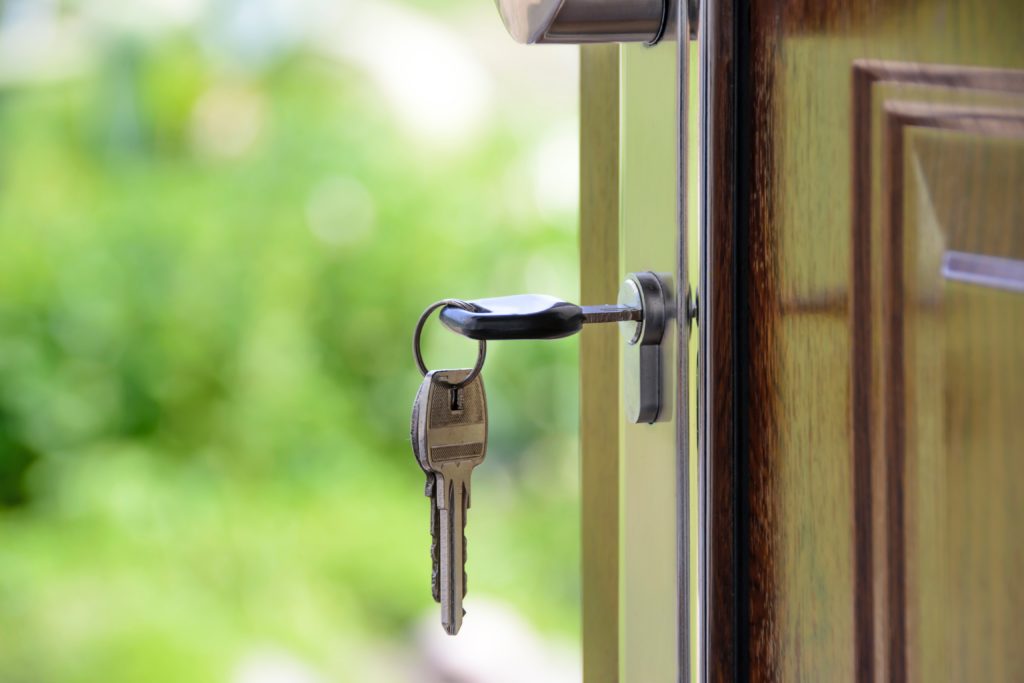3.9.20
First things to do when you buy a home


Consumers home loans
Consumers helps more than 1,000 members finance land, first and second homes, and home improvement projects each year. When you need a mortgage or home equity line of credit, contact us. We’re here to help you get the home of your dreams!
Learn more7 ways to stay safe and maintain your new house that you might overlook during the frenzy of moving in.
Moving to a new home brings a frenzy of activity: unpacking, decorating and organizing your things in a new space, just to name a few. As you settle in, there are less visible things you should do when you first move in, too. Here are seven things that are easy to overlook but will keep you—and your family—safe. They’ll also help you maintain your new abode.
Change the locks
When the seller turns the keys over, you have no way of knowing who might hold duplicates. To keep your home secure, change the locks or have existing locks re-keyed by a locksmith. Change digital security codes, too.
Replace batteries
Smoke detectors, carbon monoxide detectors and thermostats should all get fresh batteries when you move in. This will also help you remember when to replace batteries in the future; just recall the month you moved in.
Change HVAC filters
Even if the prior homeowner faithfully changed the filter for the heating and air conditioning systems, chances are pretty good that it didn’t get changed when their attention shifted to packing up and moving out. Change the HVAC filter and make a calendar reminder to replace it each month.
Update your address
Even if you pay all your bills online, you’ll want to update your address with your financial institutions, credit card providers, employer and others who may still send important paper documents.
Also, file a change of address with the U.S. Postal Service.
Get to know your neighbors
Neighbors can have a huge influence on your quality of life. Simply knowing your neighbors by name and having an open line of communication can go a long way to make life better for all. Introduce yourself, exchange contact information and look out for each other. Who knows, you might just become lifelong friends!
You can also build connections in your new community through online social platforms like Nextdoor.
Ask for referrals—even before you need them
If you move far from your old neighborhood, you’ll need to rebuild a new network of service providers. It’s better to have them before you need them than to scramble when an urgent situation arises.
Ask current trusted providers if they have referrals they know near your new residence. Your doctor, dentist and hairdresser will have extensive networks you can tap into.
As you meet your new neighbors, ask them which plumbers, electricians, appliance repair companies, etc., they use.
Locate emergency shut-offs
The best time to locate emergency shut-offs is when there is no emergency. Make sure you know where to find the water shut-off valve and electrical panel with the main breaker. Be sure all adults in the house also know where they are and how they work.
Consumers helps more than 1,000 members finance land, first and second homes, and home improvement projects each year. When you need a mortgage or home equity line of credit, call us at 800.991.2221. We’re here to help you get the home of your dreams!
![]()

Consumers home loans
Consumers helps more than 1,000 members finance land, first and second homes, and home improvement projects each year. When you need a mortgage or home equity line of credit, contact us. We’re here to help you get the home of your dreams!
Learn more


I would like to buy an condo when the time is right for myself. Thanks LAR